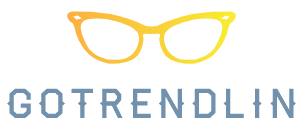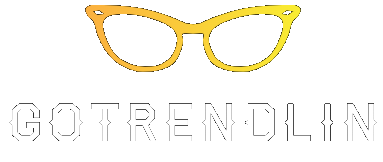Are you feeling stagnant in your career or struggling to keep up with the constantly evolving industry trends? Investing in yourself through continuing education and professional development may be just what you need to take control of your professional growth. In this blog post, we'll explore why investing in yourself is crucial for career advancement and share actionable tips on how to make it a priority. So, grab a cup of coffee, sit back, and let's dive into the world of self-investment!
What is Professional Development?
In order to stay ahead of the curve and remain competitive in today's economy, it is essential for professionals to invest in themselves. Continuous education and professional development are two key ways to keep your skills up-to-date and ensure that you maintain a edge over your competition.
Continuous education provides an opportunity to update your knowledge and skills through courses, seminars, or workshops offered by organizations such as universities, professional societies, businesses, or government agencies. Professional development can help you improve your abilities in your current job or position by providing you with new skills or techniques.
There are many benefits to investing in yourself through continuing education and professional development:
You will stay current on the latest industry trends.
You will develop new skills that will be valuable in future jobs or careers.
You will increase your chances of being promoted within your organization.
Your reputation as a knowledgeable professional will be enhanced.
Why is Professional Development important?
Continuing education and professional development are important investments in your career. They provide you with the skills and knowledge to stay ahead of the curve, keep up with new trends, and address challenges that may arise in your work.
Professional development can also help you build a strong network of colleagues and experts who can offer you guidance and support when needed. It can also lead to new job opportunities or promotions. And finally, continuing education can give you a competitive edge when applying for jobs or seeking promotions.
There is no one-size-fits-all approach to professional development, so find what works best for you. However, there are some key things to keep in mind when investing in yourself:
1. Make sure your professional development is relevant to your career goals. The courses and workshops you take should be aligned with the skills and knowledge you need to achieve your goals.
2. Choose programs that will challenge you but also provide benefits such as new insights, contacts, and tools that will help you succeed in your work.
3. Take advantage of online resources as well as face-to-face training opportunities offered by your employer or other organizations involved in professional development. This way, you can get the most out of your investment while staying flexible with your schedule.
Types of Professional Development
Continuing education and professional development are essential parts of being a successful business professional. Here are some types of professional development you may want to consider:
1. Educational workshops or seminars on current industry trends and topics
2. Training on specific software programs or software-related tools
3. Participation in online learning communities or virtual conferences
4. attendance at industry trade shows or other events related to your field
5. Taking courses or participating in workshops offered by your employer or other organizations
6. Participating in self-paced online learning programs
How to find and choose the right Professional Development program for you.
There are many types of professional development programs available, so it is important to choose the right one for you. Here are four tips to help you find the right program:
1. Ask Yourself What You Want to Accomplish
The first step is to decide what you want to accomplish with the program. Do you want to learn new information? deepen your knowledge? gain new skills? If you aren't sure, ask yourself which areas of your career need improvement.
2. Consider Your Time and Financial Resources
Next, consider how much time and money you can spend on the program and how important it is to you. Some programs are free or require a small fee, while others may be more expensive but offer greater benefits.
3. Evaluate Programs Based on Their Content and Format
Once you have decided on the type of program and the amount of time and money you can commit, evaluate each option based on its content and format. Do some programs have more online components than others? Are all sessions face-to-face? What type of feedback will be provided after completing the program?
4. Ask Your Colleagues or Friends for Input
Cost of Professional Development.
Continuing education and professional development offer a cost-effective way to stay ahead of the curve and maintain your skills. According to the Bureau of Labor Statistics, the average hourly wage for occupations that require a college degree or higher was $27 in May 2009. The following table shows the average cost of different types of continuing education courses and programs.
Type of Continuing Education Course or Program Cost (Annual)
Self-Study $178
Seminars $227
Workshops $266
Online Courses $191
The benefits of professional development include:
Maintaining Current Skills
Developing New Skills
Reducing Risk in Your Job
Continuing education can help you maintain your skills by providing opportunities to learn about new topics or techniques. In addition, it can give you the opportunity to develop new skills by learning how to do something better. Finally, continuing education can help reduce risk by teaching you how to deal with problems that may arise in your job.
How to Finance Your Education.
Continuing education and professional development are important investments for career growth, earning potential, and personal satisfaction. There are many ways to finance your education and professional development, including grants, student loans, private scholarships, and employer contributions. Before making any financial decisions about your education or professional development, be sure to consult with an experienced financial advisor.
To learn more about the various financing options available to you, consider consulting the following resources:
The Grants Resource Center at The College Board provides information on grants available from federal, state and local sources.
The Private Scholarship Database at Scholarships.com provides information on private scholarships available to students nationwide.
The Student Loan Resource Center at The College Board provides information on federal and private student loans available to students nationwide.
Conclusion
The truth is, the world is constantly evolving and changing. In order to stay ahead of the curve and keep up with the latest trends, it's important to invest in yourself – both education-wise and professionally. Professional development opportunities allow you to grow as an individual and learn from some of the best minds in your industry; continuing education allows you to stay current on the latest changes so that you can continue providing great service to your clients. Both are essential for success in today's business world. So what are you waiting for? Invest in yourself today!


